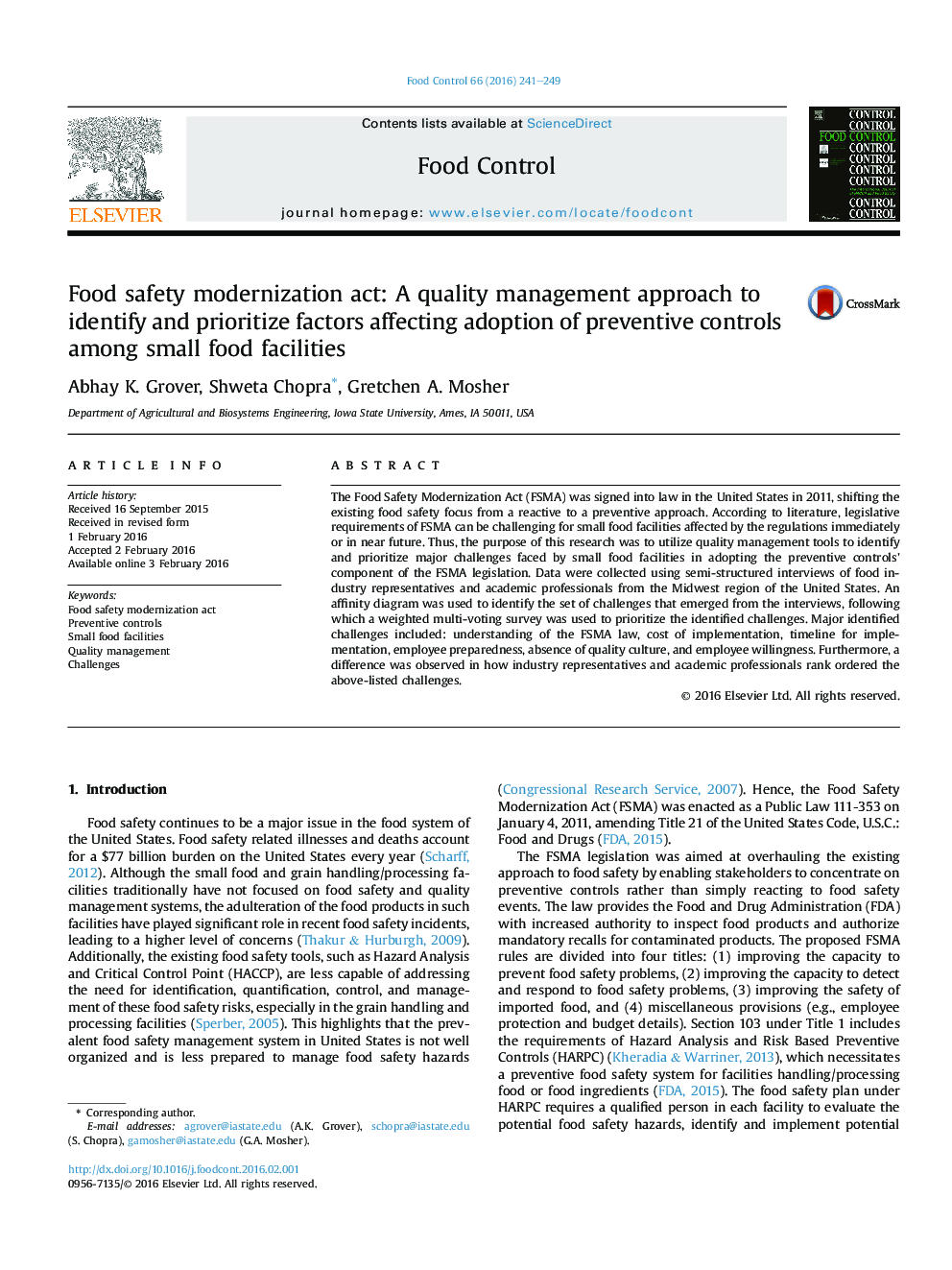| Article ID | Journal | Published Year | Pages | File Type |
|---|---|---|---|---|
| 4559197 | Food Control | 2016 | 9 Pages |
•We observed industry representatives and academic professionals rank ordered challenges for FSMA adoption differently.•We identified understanding of FSMA law as a major barrier for FSMA adoption.•Employee willingness is considered least persistent challenge for FSMA adoption among small food and grain facilities.
The Food Safety Modernization Act (FSMA) was signed into law in the United States in 2011, shifting the existing food safety focus from a reactive to a preventive approach. According to literature, legislative requirements of FSMA can be challenging for small food facilities affected by the regulations immediately or in near future. Thus, the purpose of this research was to utilize quality management tools to identify and prioritize major challenges faced by small food facilities in adopting the preventive controls' component of the FSMA legislation. Data were collected using semi-structured interviews of food industry representatives and academic professionals from the Midwest region of the United States. An affinity diagram was used to identify the set of challenges that emerged from the interviews, following which a weighted multi-voting survey was used to prioritize the identified challenges. Major identified challenges included: understanding of the FSMA law, cost of implementation, timeline for implementation, employee preparedness, absence of quality culture, and employee willingness. Furthermore, a difference was observed in how industry representatives and academic professionals rank ordered the above-listed challenges.
